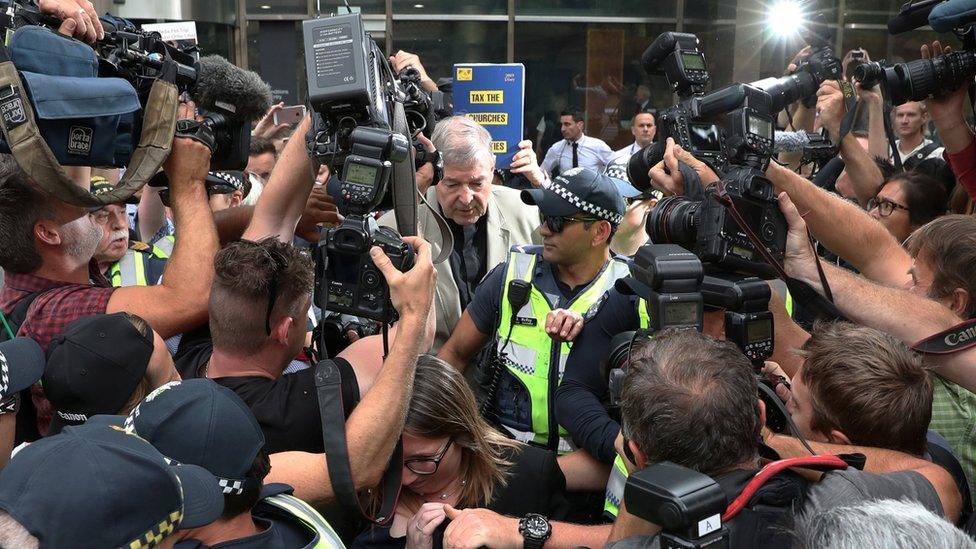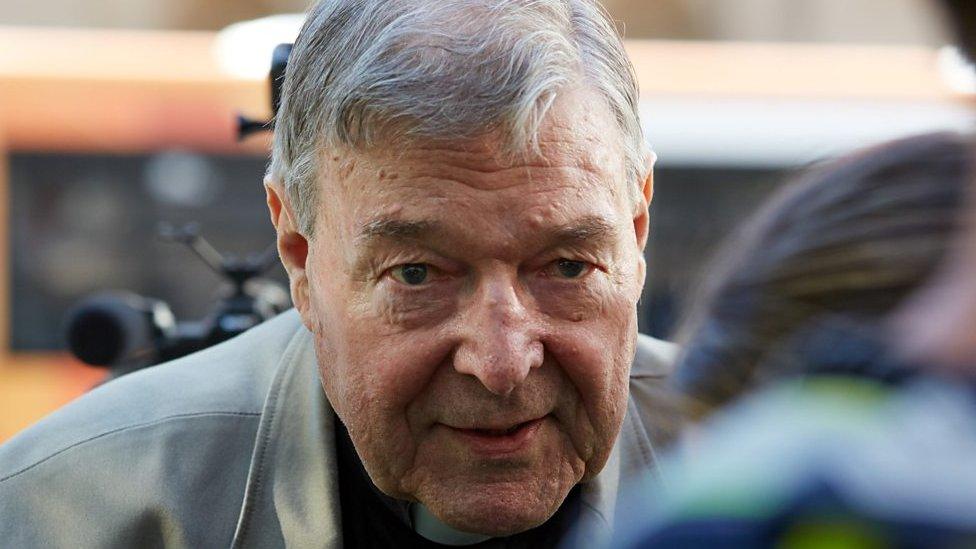George Pell case: Australian media defend 'contempt' allegations
- Published

Cardinal Pell's case was closely followed by local and international media
Dozens of journalists and major news outlets in Australia have begun defending accusations that they breached a reporting ban on the sexual abuse trial of Cardinal George Pell.
Pell, the ex-Vatican treasurer, was convicted in December of abusing two boys in 1996. The media was barred from reporting the verdict until February.
Prosecutors say 23 journalists and 13 publishers committed contempt of court.
The case could have a "chilling effect" on "open justice", defence lawyers say.
If found guilty, the defendants face up to five years in jail and fines of about A$96,000 (£52,000; $69,000).
They include journalists from many of Australia's largest news organisations, including the editors of newspapers The Age and the Herald Sun, as well as prominent TV and radio presenters.
Defence barrister Matthew Collins told a court on Monday that the case was unprecedented in Australian legal history.
What happened last year?
A judge banned the media from reporting on Pell's trial, in order to prevent any influence on a planned second trial.
In December, the cardinal was convicted by a jury of sexually abusing two choir boys in Melbourne in 1996.
The verdict prompted many Australian media outlets to publish articles that referred to the case in some way - although none named Pell. Several non-Australian publications did identify him.
The reporting ban, known as a suppression order, was lifted earlier this year after prosecutors dropped the planned second trial.
Pell has launched an appeal against his conviction.
What happened on Monday?
Mr Collins, who is representing all 36 defendants, told a court that none of his clients' media reports had identified Pell or the charges he had faced.
"They didn't reference the cardinal - just referred to the fact that there was a broader story that could not be told," Mr Collins said, according to Reuters.
He added that the defendants were "not fringe players" but rather mainstream news organisations with no history of breaching court orders.
Prosecutors alleged that local media coverage had "aided and betted the overseas media's contempt". Outlets outside Australian jurisdiction are not facing legal action.
Judge John Dixon said he was still to decide the whether case should involve one or 36 trials, or "something in between".
The hearing was adjourned until 26 June.
The case follows much debate in Australia over the effectiveness of suppression orders in the internet age.
- Published13 March 2019
